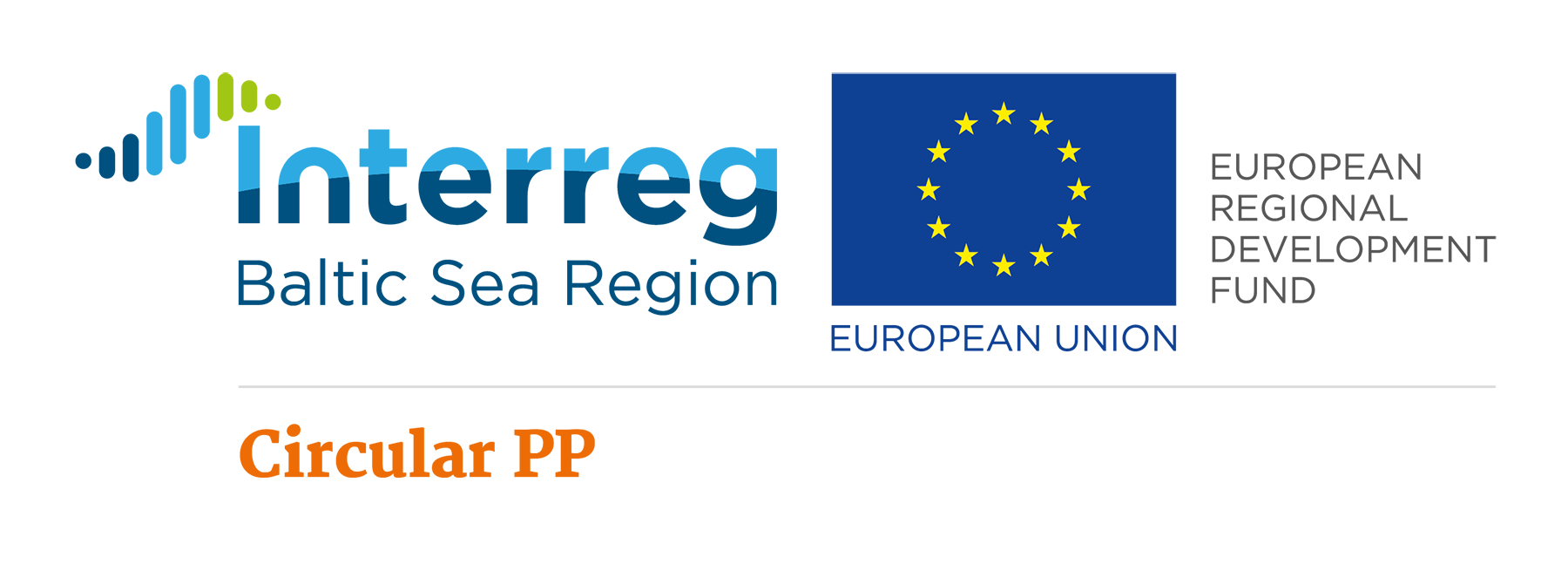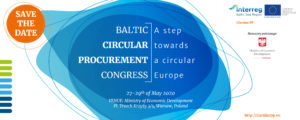About Circular Public Procurement
Circular Public Procurement is a 3 year project supported by the Interreg Baltic Sea Region Programme.
The aim is to address the societal challenge of resource efficiency, by considering innovation from a multidimensional perspective – including involving products, processes and new business models and by exploiting the synergies between public authorities, research institutions, SMEs and non-profit organisations in this field.
Through innovative thinking, change of mindset and new points of view on the existing reality, a ´getting-more-by-using less´ approach will be introduced. This change of paradigms in the current way of using resources will be given by introducing the principles of circular economy thinking to the market and in the public procurement strategies and practices of partner cities.
A circular economy approach is an alternative to the “make, use, dispose” model, which aims to keep products and materials in the value chain for a longer period and to recover raw materials after the lifetime of the products for their next use.
Applied to public procurement, circular procurement is known as a different way of acquiring goods and services that promotes consideration of the whole lifecycle of products throughout their supply chain. A focus on the use and services provided by a product instead of the ownership catalyses the development of new business models, which are expected to be necessary to promote a circular economy. By experimenting with non-conventional business models, focussing on quality of products and services and creating resource loops, circular procurement aims to lead the way to a circular economy.
Concept
The main goal of this project is to develop an adequate framework for circular procurement in the countries belonging to the Baltic Sea Region, by following a four steps approach:
- Analysis of the status quo in Circular Procurement in the Baltic Sea Region and identification of improvement potentials at a at local, national and transnational level.
- Building necessary capacity on circular procurement for all relevant stakeholders of the value supply chain, namely public procurers, SMEs and policy makers.
- Delivering call for tenders aligned with the defined priority areas to enable learning by doing and ensure the projects develops practical capacity building material (e.g. training, guidance, future recommendations).
- Disseminating widely the project results among European public procurers and SMEs, using strategic partners and relevant channels.
The partnership consists of The City of Aalborg (DK), Aalborg University (DK), North Denmark EU Office (DK), Finnish Environment Institute (FL), Latvian Environmental Investment Fund (LV), Latvian Chamber of Commerce and Industry (LV), Rzeszow Regional Development Agency (PL), Saint Petersburg campus of National Research University Higher School of Economics (RU), City of Malmo (S) og Rijkswaterstaat – Ministry of Infrastructure and Water Management (NL).
You are always welcome to contact one of the project managers Birgitte Krebs Schleemann if you would like more information about the project.


